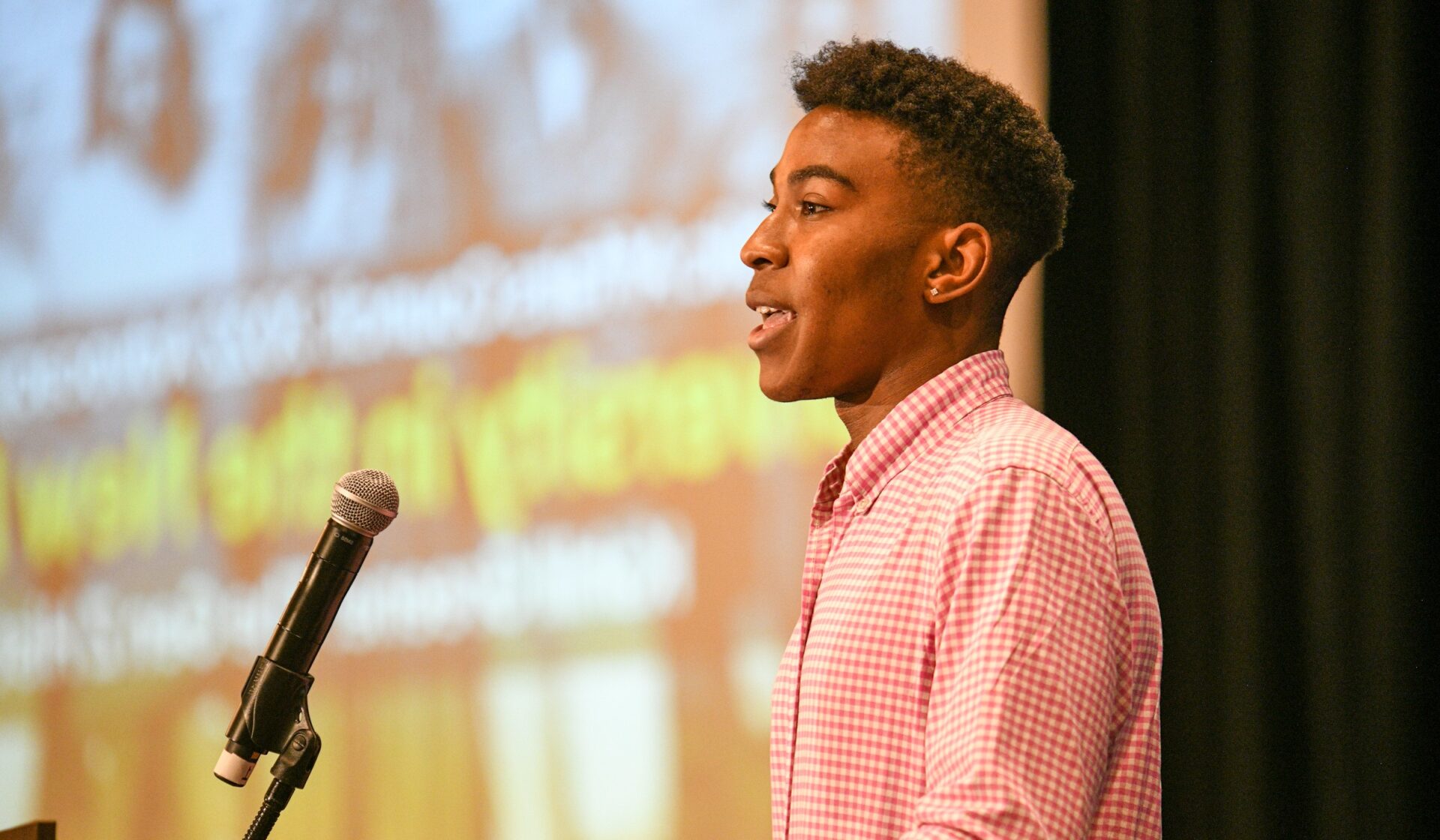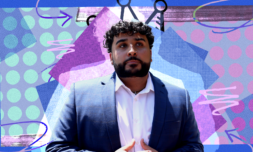The self-professed Gen Z historian, who uses content creation to channel his passion for history, social justice, and public speaking, educates young people on how to build their knowledge so as to best support the causes they care about most. We spoke to him about what this involves.
‘Everyone has a different way of enacting change,’ says Kahlil Greene. ‘For me, it’s educating.’
Exemplifying this statement, the 23-year-old began his journey as Yale’s first Black student body president, taking his expertise online after graduating.
Today, he goes by the moniker ‘Gen Z Historian’ on TikTok, Instagram, and LinkedIn, where he uses his far-reaching influence to generate awareness around social issues as they arise in real-time and inform his 730,000 followers on lesser-known historical moments and cultural movements.
@kahlilgreene Comment your favorite MLK quotes #mlk #mlkday #mlkday2021 #blm #politics inspired by @bobacommie ♬ Glory (From the Motion Picture Selma) – Common & John Legend
Aside from content creation, he is a correspondent on Nickelodeon’s Nick News series, has worked directly with the White House, authored numerous op-eds about organisational equity, and gives speeches to schools, non-profits, and corporations about young people’s standards for inclusion.
‘I see myself as a researcher and communicator primarily,’ he asserts. ‘I’m in the business of changing minds.’
But what exactly does this involve and when did Kahlil come to realise that pursuing this avenue for effecting tangible change at scale was his purpose in life? We had the chance to speak with him and find out.
From realisation to purpose
Kahlil’s exposure to the injustices he would later go on to challenge began during childhood.
Despite being raised in America’s second most ethnically diverse town, he tells me that the K-12 public education system he was part of highlighted to him the existence of prevailing segregation and wealth disparity in his community.
In the US, schools are funded by local property taxes, which means that the more affluent the area, the better the facilities (and vice versa).
‘I went to a Title I institution that had to be propped up by the federal government because LPTs weren’t even enough to keep it going,’ says Kahlil.
This was a stark contrast to what followed – four years at a Magnet school where ‘everything was painted in gold.’
‘I saw upfront how race, class, and education are all so intricately tied,’ he says. ‘I would constantly ask myself why this was the case and why nobody was discussing it.’
As he explains, this is largely to do with people’s reluctance to accept that there are many factors beyond merit equating to success in our society.
View this post on Instagram
‘People are always quick to say that access to these spaces should be based on smarts alone, but in reality it’s who you know,’ says Kahlil, adding that his first week at Yale was when this truly caught his attention.
‘Seeing that some of my peers were so obviously at an advantage drove me to dig deeper, to investigate further, which then acted as the catalyst for my desire to vocalise my frustrations,’ he says.
‘It wasn’t until I became student body president, however, that I had a platform to do so.’
Elected in 2019, Kahlil tells me that before his term, the role was ‘sterile and corporate,’ that there had been few with the responsibility who were actually willing to distance themselves from the university’s power structures and adopt a hands on approach.
‘I was the activist president, impassioned to translate student power into change any way that I could’ he says. ‘I would regularly participate in protests and try my best to bring about progress on matters that were intrinsically linked to my identity.’
This, Kahlil most certainly achieved. Of his many successes (some 70 policy projects to be precise), the $57K he raised for BLM following the death of George Floyd and the removal of Yale’s A through F grading during the pandemic to guarantee his peers wouldn’t be unfairly penalised due to their home situation at that time are the most notable.
Both were showcased by national news and both, says Kahlil, would go on to launch his content creation story.
The Gen Z Historian
Finding that he missed having his ‘views taken seriously’ post-presidency, Kahlil recognised that, going forward, he would need a viable method of expressing his thoughts to an audience.
Fortunately, on the back of this insight, an opportunity presented itself in the form of Trump’s administration suing Yale, accusing the university of doing too much to support students from underrepresented backgrounds.
In response, Kahlil wrote a piece for the Washington Post, stressing that the only solution to the problem would be ‘dispelling myths about affirmative action.’
This, he says, validated his calling to stand up against wrongdoings, and with TikTok’s precipitous rise to fame occurring simultaneously, Kahlil jumped on the content creation bandwagon, deeming it the next logical step in taking his advocacy to greater heights.
‘I saw the potential of this platform to spotlight the problematic moments in history that got us to the point we’re at now,’ he says.





















